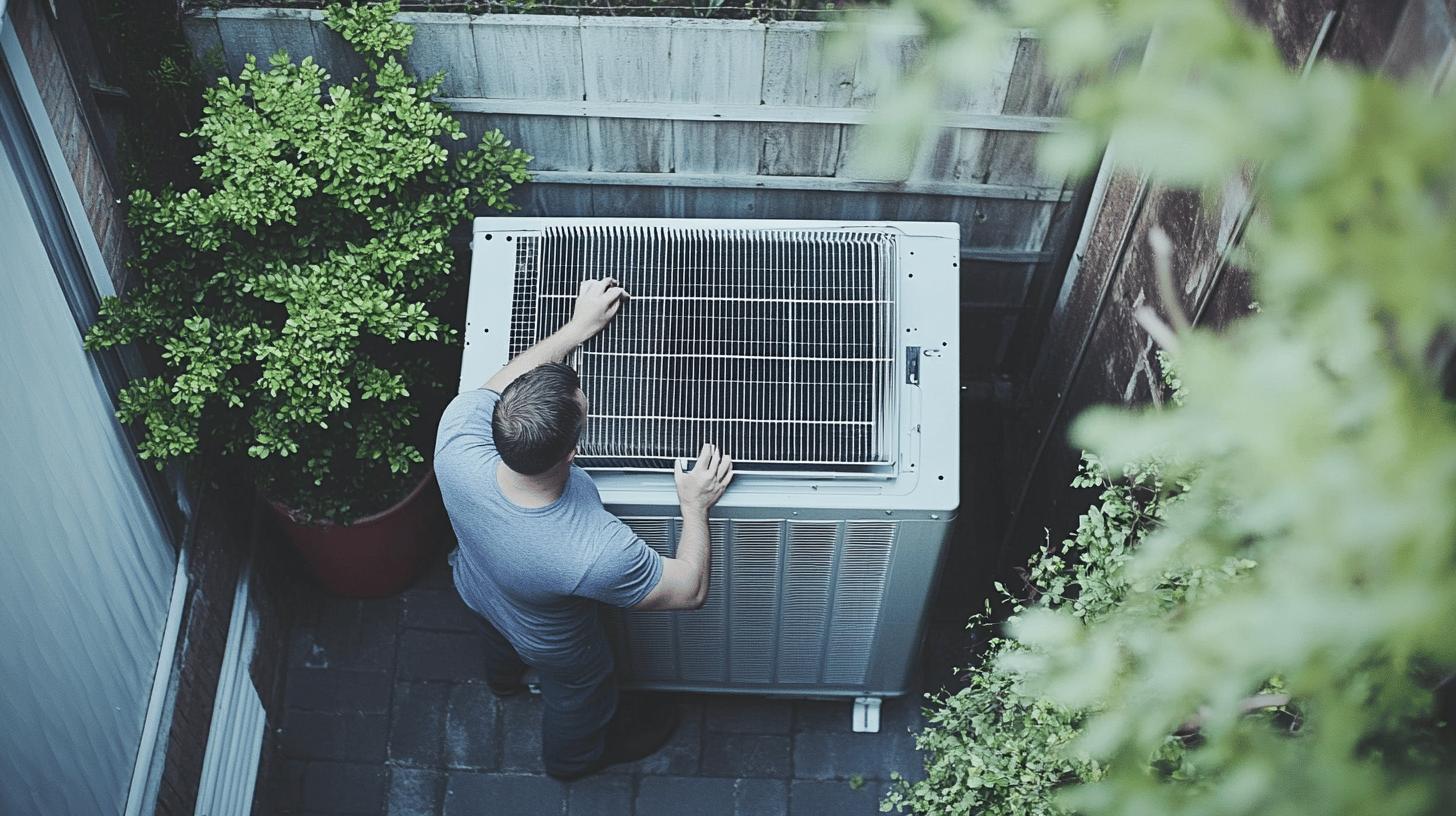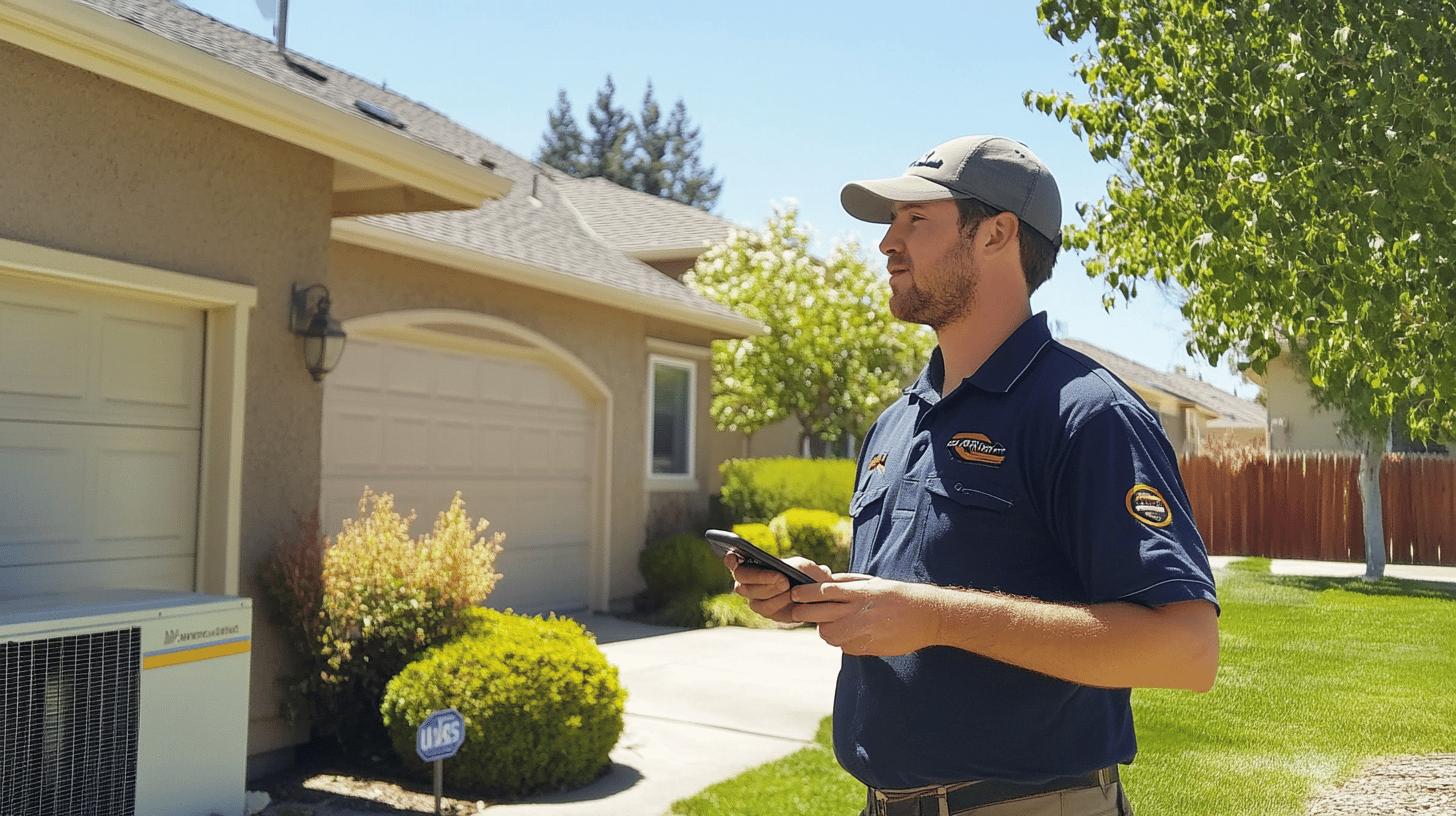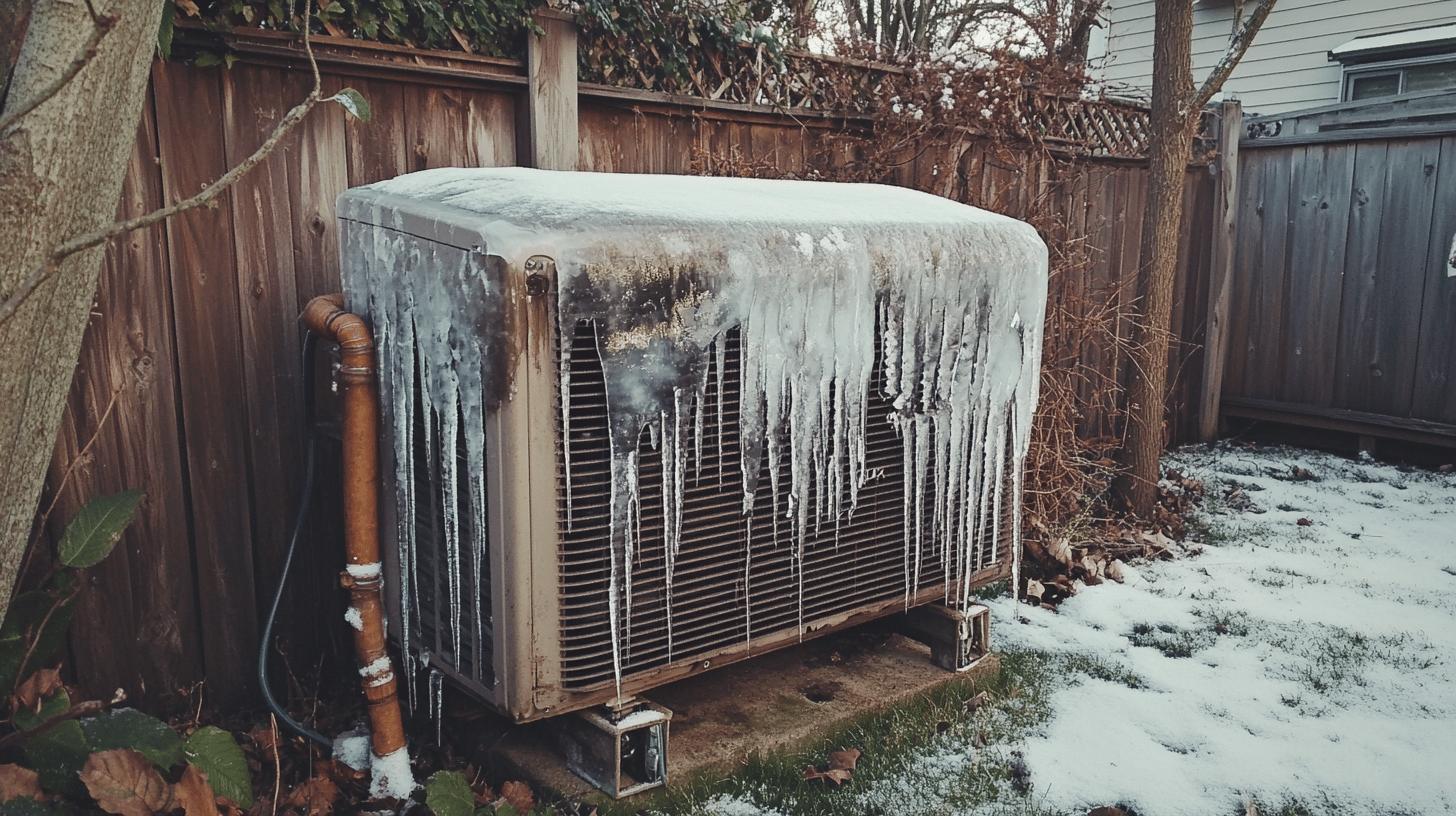TL;DR:
- Common HVAC cooling issues: dirty air filters, low refrigerant, malfunctioning compressors, faulty fans, blocked/leaky ducts.
- Basic troubleshooting: check thermostat settings, circuit breakers, air filters, outdoor unit operation, cooling coils.
- DIY fixes: replace air filters, clean coils, unblock vents, inspect ducts, check thermostat.
- Call professionals for persistent issues, electrical problems, or suspected refrigerant leaks.
- Importance of regular maintenance: catches minor issues early, improves efficiency and longevity.
- Key maintenance tasks: clean/replacement of air filters, coils, check refrigerant, inspect ducts, clear outdoor unit debris, schedule seasonal tune-ups.
Is your AC blowing hot air when you need it the most? You’re not the only one. Many people deal with an AC system that just isn’t working right, especially during the hot summer. With a few simple fixes and some tips, you can turn your space back into a cool, comfortable place. In this guide, we’ll go over the most common reasons ACs fail and give you easy solutions. Whether you want to try fixing it yourself or call in a pro, we’ve got you covered with advice and expert tips.
Common Causes for HVAC System Not Cooling
Keeping your HVAC system in good shape is important for staying cool. If your system isn’t cooling properly, there are a few common issues that could be the cause. Dirty filters are one problem, as they block airflow and reduce cooling. Low refrigerant levels, often because of leaks, can also affect how well it works. Broken parts like compressors or fans can stop the system from cooling too. Plus, blocked or leaky ducts can stop the cool air from spreading around your home.
Problems to consider include:
- Dirty air filters
- Low refrigerant levels
- Malfunctioning compressors
- Faulty fans
- Blocked ductwork
- Leaking ducts
- Dirty evaporator or condenser coils
These problems can seriously affect how well your HVAC system works. Dirty filters or low refrigerant make the system work harder, using more energy and causing wear and tear on parts. Faulty compressors or fans can make everything run poorly and shorten the system’s lifespan. Blocked ducts can lead to uneven cooling around your home.
To keep things running smoothly, it’s important to address these issues as soon as you can. Fixing them quickly helps your system perform at its best and lasts longer.
Troubleshooting Your HVAC System’s Cooling Problems

If your HVAC isn’t cooling properly, start with the basics. First, check the thermostat—make sure it’s set to “cool” and the temperature is low enough. Then, check the circuit breakers to ensure both the indoor and outdoor units have power. A tripped breaker could be the culprit. Also, inspect the air filters; dirty filters reduce airflow and efficiency. Finally, check if the outdoor unit is running. If it’s not, there might be a bigger issue at hand.
| Problem Area | Initial Checks | Suggested Fix |
|———————|————————————————–|————————————–|
| Thermostat | Verify settings and replace batteries if needed | Adjust settings or replace batteries |
| Circuit Breakers | Ensure they are not tripped | Reset breakers |
| Air Filters | Check for dirt and blockage | Clean or replace filters |
| Outdoor Unit | Confirm it is running and fan is operational | Remove debris or clear blockages |
| Cooling Coils | Inspect for dirt and proper airflow | Clean coils if dirty |
| Compressor | Listen for unusual noises or vibrations | Professional servicing |
If these checks don’t fix the problem, it’s time to call in a pro. Issues like dirty cooling coils or a broken compressor can be tricky. HVAC experts can diagnose and fix these problems, checking refrigerant levels and inspecting mechanical parts for efficiency. Regular professional service not only solves current issues but also prevents future ones, keeping your system running longer and better.
DIY Fixes for HVAC Cooling Issues
Simple DIY fixes can really improve your HVAC’s performance. One easy thing to do is check and replace air filters. Cleaning the AC, like condenser coils, and unblocking vents also helps boost cooling efficiency. These tasks are simple but make a big difference in how comfortable your home feels. By doing these yourself, you can prevent bigger problems and keep your system running smoothly.
Some actions to take:
- Replace dirty air filters regularly.
- Clean condenser coils for better heat transfer.
- Unblock vents for improved airflow.
- Inspect ducts for leaks or disconnections.
- Check thermostat settings and functionality.
Regular maintenance is crucial for keeping your HVAC system running efficiently and reliably. Adding these DIY steps to your routine helps improve cooling performance and extends the system’s life. Simple tasks prevent small issues from turning into costly repairs, making sure your system stays reliable, especially during peak usage times.
When to Call a Professional for HVAC Cooling Problems

DIY troubleshooting is helpful, but there are times when you need to call a professional for AC issues. If problems persist, or if you’re dealing with electrical issues or suspect a refrigerant leak, it’s best to get expert help. These problems require specialized tools and knowledge, and handling them without proper training can cause more damage or be dangerous.
A professional ensures the repair is done right and safely. Regular tune-ups are also important for maintaining your system’s efficiency and lifespan. A professional AC tune-up includes thorough inspections where they can spot problems like a failing capacitor or worn-out parts before they cause major issues. This helps your system run smoothly, preventing breakdowns during high-demand times and improving overall performance.
HVAC Maintenance Tips for Optimal Cooling
Regular maintenance is essential for keeping your HVAC system running smoothly, especially during the hot summer months. Why is it important? It helps catch small problems early before they turn into expensive repairs or breakdowns. Well-maintained systems cool better, last longer, and keep you comfortable. Taking care of filters, coils, and ducts ensures that air flows efficiently and heat is exchanged properly, which is key to effective cooling.
Key maintenance tasks include:
- Clean or replace air filters monthly.
- Clean condenser and evaporator coils for efficient heat transfer.
- Check refrigerant levels and fix leaks quickly.
- Inspect ducts for blockages or leaks that hinder airflow.
- Ensure the thermostat works and is set correctly.
- Clear debris around the outdoor unit for better airflow.
Scheduling seasonal tune-ups is a must. Why? They give professionals a chance to evaluate your system thoroughly and catch any early signs of wear or potential issues. Taking proactive steps helps prevent breakdowns and keeps your system running at its best all year long. A professional will fine-tune settings, check refrigerant levels, and make necessary repairs, ensuring your HVAC is ready for the busiest seasons.
Final Words
When your HVAC system isn’t cooling properly, common issues like dirty filters and low refrigerant levels are often the cause. Start troubleshooting by checking the thermostat settings and cleaning components. If DIY fixes don’t work, a professional can diagnose and maintain the system properly. Regular care and maintenance can prevent cooling problems and keep your system running efficiently. By understanding these key points, you can fix issues quickly and ensure your HVAC system lasts longer, keeping your home comfortable year-round.
FAQ
Why is my HVAC running but not cooling?
An HVAC system may run but not cool due to dirty filters, low refrigerant, or faulty components like compressors. Blocked ductwork can also impede the airflow, affecting cooling efficiency.
How do I fix my HVAC not blowing cold air?
To address this, check and clean air filters, inspect the thermostat settings, and ensure the outdoor unit is operational. If issues persist, consider professional assistance.
Should I turn the AC off if it’s not cooling?
It’s advisable to turn off the AC to prevent further strain on the system and evaluate the underlying issue before restarting.
How do I reset my central AC if it’s not blowing cold air?
Switch off the AC thermostat, turn off the power supply at the breaker, wait a few minutes, and restore power. This reset might resolve the issue.
Why is my AC not blowing cold air in my car?
Potential reasons include refrigerant leaks, faulty compressors, or issues with the car’s electrical system. Inspect these components for diagnosing the problem.
Why is my air conditioner blowing air but not cooling the house?
Your air conditioner might struggle if filters are clogged, refrigerant levels are low, or there’s a malfunction in components like the compressor or fans.
Why is my AC not cooling even after cleaning?
Persistent cooling issues after cleaning may result from refrigerant leaks, blocked ductwork, or malfunctioning parts, requiring professional evaluation.
Why does my AC not cool below 75 degrees?
This could be due to insufficient refrigerant, dirty coils, or an inadequate system size for the space. Inspect these areas to identify the cause.

